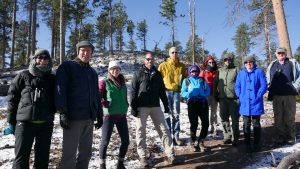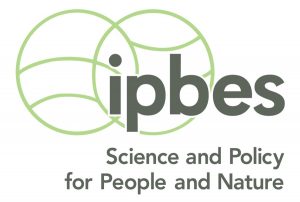Science Engagement
Supporting innovative collaborations and partnerships between ecologists, agencies, and other organizations
ESA Panel on Vegetation Classification

The ESA Panel on Vegetation Classification provides impartial scientific expertise to agencies and partners, and represents the expertise of professional ecologists spanning academic, agency, and non-governmental sectors. The Panel’s mission is to develop the standards and content for the US National Vegetation Classification (USNVC) and implement a rigorous peer review process for revising the classification.
The USNVC is a national framework organized around ecological principles for the study of plant communities. It is the first dynamic classification, designed to adapt as new ecological knowledge becomes available. The ESA Panel has worked to ensure the scientific rigor of the classification and facilitate its development, collaborating with other organizations and agencies in the USNVC Partnership. The USNVC Proceedings serves as the official record of approved revisions to the USNVC. VegBank is the Panel’s open-access vegetation plot database.
IPBES

ESA promotes US scientist engagement with the Intergovernmental Science-Policy Platform on Biodiversity and Ecosystem Services (IPBES). For more information on how to get involved with IPBES assessments, see the international IPBES website.
Nagoya Protocol and the Shifting Landscape
of International Biological Research
The Nagoya Protocol, part of the Convention on Biological Diversity, calls for sharing the benefits from the use of genetic resources with the people who live where those resources are found. This “access to benefits” requirement has important implications for scientists conducting international biological research.

ESA organized a workshop in 2017 that brought together leaders of professional societies in biology and other sciences to learn about the Protocol and its potential effects on the research enterprise. One outcome of the workshop has been the creation of the USA Nagoya Protocol Action Group – a group of professional society leaders who are working on outreach and education efforts about the Protocol to ensure more scientists are aware of it and its requirements. For more information, see: https://learnnagoya.com/
Earth Stewardship
The Ecological Society of America (ESA), in partnership with other academic societies, agencies, and non-governmental groups, seeks to foster earth stewardship by (1) clarifying the science needs for understanding and shaping trajectories of change at local-to-global scales; (2) communicating the basis for earth stewardship to a broad range of audiences, including natural and social scientists, students, the general public, policy makers, and other practitioners; and (3) formulating pragmatic strategies that foster a more sustainable trajectory of global change by enhancing ecosystem resilience and human well-being.